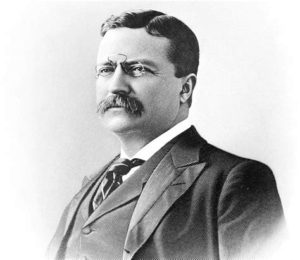“Declaring the end from the beginning…saying, My counsel shall stand, and I will do all my pleasure.” Isaiah 46:10
 What can we rely on during these unsteady times? The financial world is a roller coaster, violence dominates the news, family breakdowns are more frequent than not, COVID is wreaking havoc on businesses and schools, and and even churches are not immune to friction and fracture. It is not just institutions that are disintegrating, but people as well. Politicians, sports figures, celebrities, and professionals all take turns falling out of their places of respect. People look around desperately for something or someone to rely on but to no avail- or at least it seems that way.
What can we rely on during these unsteady times? The financial world is a roller coaster, violence dominates the news, family breakdowns are more frequent than not, COVID is wreaking havoc on businesses and schools, and and even churches are not immune to friction and fracture. It is not just institutions that are disintegrating, but people as well. Politicians, sports figures, celebrities, and professionals all take turns falling out of their places of respect. People look around desperately for something or someone to rely on but to no avail- or at least it seems that way.
We need someone who is constant in this inconsistent world. That kind of unchanging rock solid foundation can only be found in God. Deuteronomy 32:4 says the Lord is “The Rock! His work is perfect, For all His ways are just; A God of faithfulness and without injustice, Righteous and upright is He,” and in 1 Samuel 2:2 we are told, “There is no one holy like the LORD, Indeed, there is no one besides You, Nor is there any rock like our God.” God can be a refuge  because He is the “same yesterday, today, and forever.”
because He is the “same yesterday, today, and forever.”
We need to put someone in charge of our lives Who does not fluctuate with every change of wind- Someone whose every decision is based on rightness. Someone who actually has a plan for our lives. There is a famous military motto: “No plan of war survives first contact with the enemy.” This holds true in every human conflict because it is impossible to know for certain how one’s enemy will react or what circumstances may intervene to change any planned course of action, but this is not true of God.
God does not wonder what the future holds and we can be assured that God does not worry about his purposes coming to fruition. Has it ever occurred to you that nothing has ever occurred to God?
 He has never said, “Huh, I never thought of that, I’m glad you brought that to my attention.” Because He knows all things, God’s plans are never frustrated, foiled, or even hindered. His word declares His purposes, His designs, and His works. He does not just describe the things that will come to pass, He has declared them and designed them. We will do our best to throw monkey wrenches in God’s plans, but ultimately He brings things into alignment with His will. He takes our wanderings and turns them into detours.
He has never said, “Huh, I never thought of that, I’m glad you brought that to my attention.” Because He knows all things, God’s plans are never frustrated, foiled, or even hindered. His word declares His purposes, His designs, and His works. He does not just describe the things that will come to pass, He has declared them and designed them. We will do our best to throw monkey wrenches in God’s plans, but ultimately He brings things into alignment with His will. He takes our wanderings and turns them into detours.
The guillemot is a small arctic sea bird that lives on the rocky cliffs of northern coastal regions. These birds flock together by the thousands in comparatively small areas. Because of the crowded  conditions, hundreds of females lay their pear-shaped eggs side by side on a narrow ledge in a long row. Since the eggs all look alike, it is incredible that a mother bird can identify those that belong to her. Yet studies show that she knows her own eggs so well that when even one is moved, she finds it and returns it to its original location.
conditions, hundreds of females lay their pear-shaped eggs side by side on a narrow ledge in a long row. Since the eggs all look alike, it is incredible that a mother bird can identify those that belong to her. Yet studies show that she knows her own eggs so well that when even one is moved, she finds it and returns it to its original location.
Scripture tells us that God is also intimately acquainted with each of his children. He knows our every thought and emotion, every decision we must make and problem we are going through. Therefore, an understanding of God’s omniscience should both evoke praise and bring comfort to believers.
 The Word tells us that God’s great plans cannot be thwarted. He may allow fluctuation in the way they come about, but they will come about. Since He is the holder of the map, it would seem that He should be the one leading our lives. Ironically, we think we know more than the One who knows all. We will try in all sorts of ways to free ourselves from the captivities of this life, but only God has the keys to freedom.
The Word tells us that God’s great plans cannot be thwarted. He may allow fluctuation in the way they come about, but they will come about. Since He is the holder of the map, it would seem that He should be the one leading our lives. Ironically, we think we know more than the One who knows all. We will try in all sorts of ways to free ourselves from the captivities of this life, but only God has the keys to freedom.
There was once a prisoner who tried to escape prison by hiding in a truck. After an uncomfortable ride the truck stopped, he crawled out, and found himself in another prison just a short drive away. That is what we do if we try to escape the confinements of this life on our own. We will just travel from one prison to another  attempting to right our life, always believing the next plan will work. There is only one who has the right plans for escape. Ironically, we build the prison, but He holds the keys.
attempting to right our life, always believing the next plan will work. There is only one who has the right plans for escape. Ironically, we build the prison, but He holds the keys.
We are enclosed by a wicked world, but God’s counsel shall stand. He will ultimately overrule wickedness for the good of his people and the glory of His name. His plans are not changed with first contact with the enemy because nothing surprises Him. He is the kind of leader we want to put our faith in, to trust our lives to, and to follow wherever He might lead for only he knows the path to freedom. Follow Him.










































